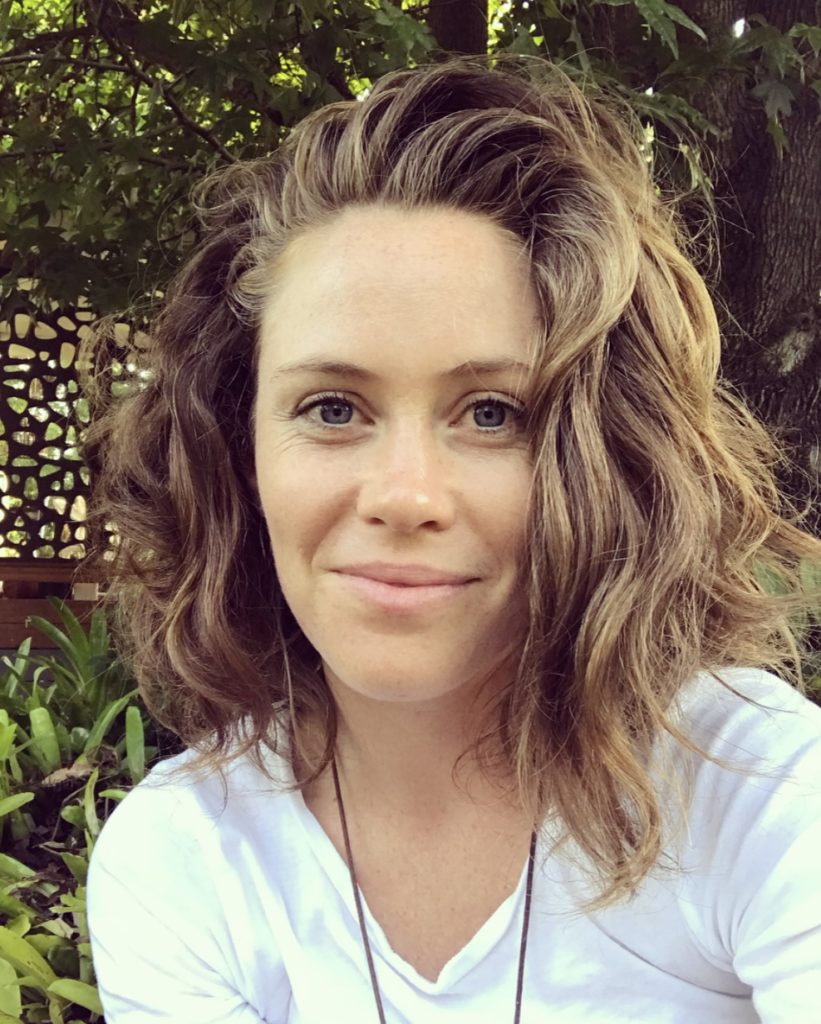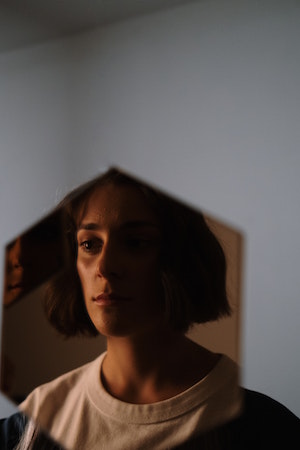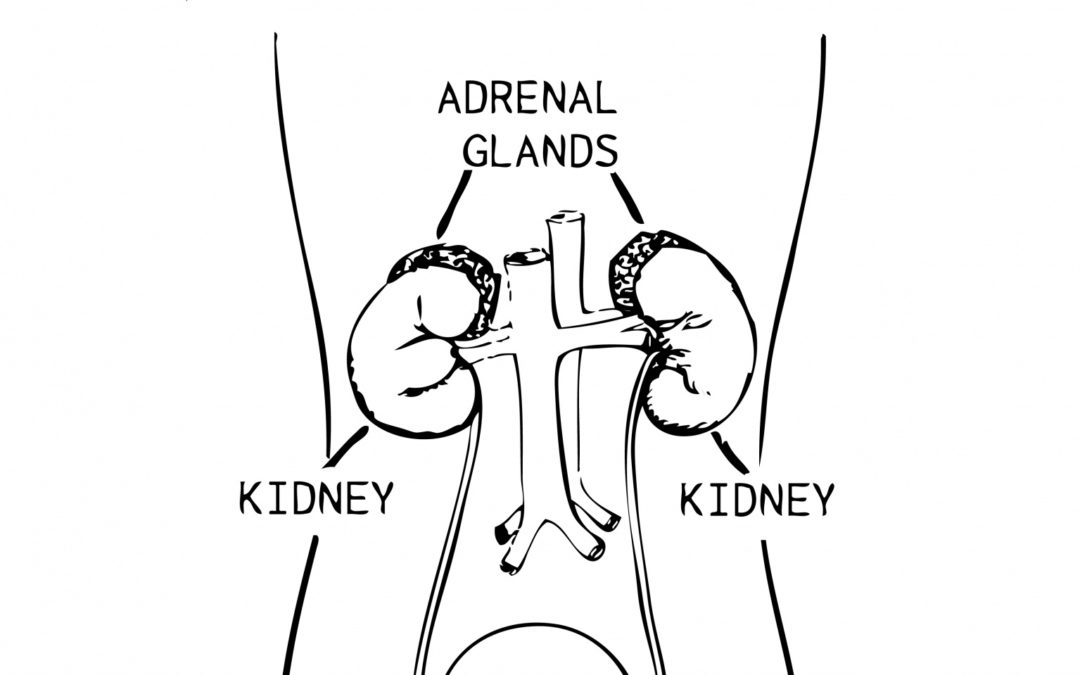
by Tanya Keam | Jan 24, 2023 | Acupuncture, Adrenal Fatigue, Anxiety, Authentic self, Chinese medicine, Chronic fatigue, Daily Rituals, Exercise, Mental health, Nambour, Self care, Sleep, Spiritual growth, Stress, Sunshine coast
What is self care ?
You might think having a relaxing bath and exercising is self care, and it is. However self care for everyone is going to be different and there are many ways to take care our wellbeing.
Checking in with yourself to see how you are is a good place to start. Sitting down for 15 minutes, closing your eyes and focussing on your breathing will tell you if you’re conscious of your breathing or not. People often find it difficult to meditate so if this is you, just sitting or lying down and focussing on your breathing is a start. Inhale for 4 counts and exhale for 4 counts continually for 15 minutes. If this is difficult then start with 5 minutes. Does the inhalation feel the same as the exhalation? Or does one feel more restricted than the other?
Once here, ask yourself how you are.
What emotions are present right now? Have I been sleeping well lately? What has been upsetting me lately? Do I feel well in my body – my energy stamina, my digestion, do I have pain in my body? How have the last 3 months been going? The past year? How do I take care of my well being? Do I take care of myself at all? Do I reach for things to change how I feel? A glass of wine, substances? How do I handle stress?
As a Eastern medicine practitioner in the health industry I often ask people how they take care of themselves day to day and also when they aren’t feeling good.
Self care ideas you maybe haven’t thought of:
- Saying no to social events because you’re not up to it
- Calling friends to be around people you love for company
- Doing food prep so you have healthy meals through the week
- Asking a friend to help you with something
- Getting help with kids so you can have a few hours to yourself
- Seeing a therapist to talk about things
- Exercising every day to get the feel good chemicals going in your body
- Reducing your work or study load
- Taking time off work
- Resting at home – literally putting your feet up with a book
- Sleep
- Stepping away from unhealthy relationships or jobs
- Allowing yourself to cry and feel
- Magnesium bath
- Time in nature
- Taking a holiday
- Being conscious of your behaviours when you are stressed
- Prayer
- Meditation
- Doing your favourite hobbies
- Conscious breathing
- Staying off social media if peoples highlight reels are triggering
- Journaling
- Trying a new activity
- Asking for help
- Quiet days at home
- Going for a health treatment such as acupuncture to balance your nervous system
- Reducing or completely removing alcohol and substances
- Slowing your life down, simplifying things
Life can get on top of us sometimes. Checking in with yourself every day by practicing self care is loving yourself. Your self care isn’t going to look the same as someone else’s self care but know there are many ways to nourish your body, mind and spirit. Give yourself time and space to move through things that are happening in your life.
 Hi, I’m Tanya Keam, an AHPRA registered Acupuncturist and natural health practitioner in Nambour in the Sunshine Coast hinterland, Queensland Australia. I practice Chinese medicine and Acupuncture because its safe, logical, relevant and has effectively shown methods of natural wellness for thousands of years (read more about my training here). Life doesn’t need to be complicated and nor does the treatment approaches to get people feeling vibrant and well. I’ve seen people gain a lot from treatments, much more than just alleviating symptoms. It’s exciting to connect with people and share deep wisdom from the classics of ancient and traditional medicine, with modern protocols for todays mind-body living. If you need some guidance in practicing better self care get in touch or book online today.
Hi, I’m Tanya Keam, an AHPRA registered Acupuncturist and natural health practitioner in Nambour in the Sunshine Coast hinterland, Queensland Australia. I practice Chinese medicine and Acupuncture because its safe, logical, relevant and has effectively shown methods of natural wellness for thousands of years (read more about my training here). Life doesn’t need to be complicated and nor does the treatment approaches to get people feeling vibrant and well. I’ve seen people gain a lot from treatments, much more than just alleviating symptoms. It’s exciting to connect with people and share deep wisdom from the classics of ancient and traditional medicine, with modern protocols for todays mind-body living. If you need some guidance in practicing better self care get in touch or book online today.

by Tanya Keam | May 6, 2021 | Acupuncture, Adrenal Fatigue, Breast feeding, Chinese medicine, Client information, Hormones, Menstrual cycle, Nambour, Post Partum Depression, pregnancy, Sunshine coast, Wellness, Womens health
Post Partum Depression
Post Partum Depression includes feelings of deep sadness and emptiness accompanied by fatigue after childbirth. Low energy or even exhaustion after childbirth is completely common and normal that would last about a week. It isn’t just feeling drained after childbirth alone, carrying around all those extra kilograms for months is exhausting, especially if you’re working during pregnancy or you have other children to also look after. However if someone is feeling flat, anxious, crying a lot, experiencing panic attacks, feeling unconnected from their newborn for longer than 2 weeks, then this might be Post Partum Depression.
Symptoms associated with Post Partum Depression can include:
- Feeling overwhelmed, sad or hopeless
- Memory problems or trouble concentrating
- Feeling disconnected from the baby
- Loss of interest or pleasure in activities
- Crying a lot
- Broken sleep which leads to sleeping too little or too much
- Feeling withdrawn from family and friends
- Feeling worthless
- Having feelings of hurting yourself or the baby
- Racing thoughts
- Racing heart rate
- Having no energy or motivation
- Headaches, digestive complaints or other pains in the body
- No appetite
What causes Post Partum Depression?
Post Partum Depression isn’t completely understand but it thought the sudden drop in hormones; progesterone and oestrogen after childbirth has a significant role to play.
Estrogen and progesterone rise to the highest levels during pregnancy then suddenly plummet once the baby is born as the mother doesn’t need to keep feeding the baby via the placenta. The Thyroid gland that is involved with making hormones and regulating metabolism can also fluctuate or drop after childbirth leading to feelings of apathy and sadness.
How Common is Post Partum Depression?
More common than you think. Approximately 1 in 10 woman will experience some level of Post Partum Depression, with varying levels of severity and symptoms.
In very rare cases, Post Partum Psychosis may occur within the first 48-72 hours or up to the first 2 weeks after giving birth. It is considered an episode of bipolar illness with rapid periods or elation and feeling low, delusions or hallucinations.
What can you do to help yourself or a loved one who may be experiencing Post Partum Depression?
Get support. Untreated Post Partum Depression can lead to thoughts of self harm from the mother or further disconnection from the newborn where the mother feels like the baby is not hers. Contacting your doctor or paediatrician is the first step to get support.
Seeking further treatment from an allied health practitioner may also be helpful. Regulating the nervous system with Chinese medicine and Acupuncture, adjusting nutritional deficiencies and correcting hormonal imbalance with herbal medicine safe for breast feeding may be helpful.
Having a child is not easy, so getting the right support for the mother is the first step. You can book an appointment for our Sunshine Coast Acupuncture Clinic or give us a call to have a chat about your healthcare needs.
Phone: 0417 732 213
Further resources In Australia:
https://www.panda.org.au/

Hi, I’m Tanya Keam, an AHPRA registered Acupuncturist and integrative health practitioner in Nambour in the Sunshine Coast hinterland, Queensland Australia.
I practice Chinese medicine because its safe, logical, relevant and has effectively shown methods of natural wellness for thousands of years (read more about my training here). Life doesn’t need to be complicated and nor does the treatment approaches to get people feeling vibrant and well. I’ve seen people gain a lot from treatments, much more than just alleviating symptoms. It’s exciting to connect with people and share deep wisdom from the classics of ancient and traditional medicine, with modern protocols for todays mind-body living. See you in the clinic !

by Tanya Keam | Apr 6, 2021 | Acupuncture, Adrenal burnout, Adrenal Fatigue, Chinese medicine, Chronic fatigue, Client information, Daily Rituals, DIY Wellness Tips, fertility acupuncture, Health practitioner, Mental health, Nambour, Sunshine coast
What is Adrenal Fatigue?
The Adrenal glands belong to the Endocrine System where they produce a variety of hormones that are essential to life. The medical term “Adrenal Insufficiency” is an inadequate production of one or more of these hormones as a result of underlying conditions. Whereas, Adrenal Fatigue isn’t an accepted medical diagnosis, it is thought that adrenal fatigue is caused by stress on the body where the adrenal glands cannot cope with the constant pace of fight-or-flight (sympathetic) nervous system response. adrenal fatigue acupuncture sunshine coast
tSigns and symptoms of adrenal insufficiency:
- Fatigue
- Body aches
- Unexplained weight loss
- Loss of body hair
- Skin discolouration
- Lightheadedness
- Low blood pressure
- Low production of hormones
Diagnosis for adrenal insufficiency can be tested to show inadequate levels of adrenal hormones.
In Traditional Chinese Medicine, adrenal fatigue is burnout. The kidney is the organ that stores our vital energy called Qi. We are all born with varying amounts of energy based on genetics, this is called out ancestral energy. This energy manages our reproduction, ageing, vitality and emotional-physical endurance. The day to day living of healthy food, exercise, relationships, environment and work/life balance is what maintains the kidney energy.
The less ancestral and vital kidney force you have (based on your lifestyle and if you’re over doing it), the sooner the chance of adrenal burnout. Chipping away at the kidney qi from too much stress, working too much without rest, living in the fight-or-flight (sympathetic) nervous system response WILL lead to adrenal burnout. When burn out is not addressed or the body is under continual strain over many years, there is a place that we cannot come back from. This leads to chronic health problems and the biggest symptom is long-term fatigue (exhaustion). The body is remarkable its in communication. Symptoms tell us something is wrong!
General fatigue can come and go, so having a holiday or some restful days off usually helps you to feel better naturally. Even having a blood test to check on a few things (such as iron levels) might be a simple explanation of fatigue. Adrenal fatigue however doesn’t just happen over night. It takes months or more of stress and over doing it to reach a point where the adrenal glands can’t keep going under pressure.
Traditional Chinese Medicine diagnoses adrenal fatigue based on multiple symptoms in relation to the energy of the kidney system. These can include :
- Fatigue and/or exhaustion
- Needing to sleep during the day after 8 hours of sleep at night
- Relying on coffee for energy
- Body aches
- Lower back pain
- Muscle weakness
- Lightheadness
- Shortness of breath
- Feel worse after exercise
- Loss of body hair or hair falling out
- Lack of concentration, focus or recall
- Low blood pressure
- Slow pulse rate
- Decreased libido
- Difficulty falling pregnant
- Thyroid imbalance
- Getting sick often or taking a long time to recover from illness
- Low blood sugar symptoms
- Waking early in the morning regularly at 4am
- Craving salty foods
- Emotional and mental instability such as anxiety
How does Traditional Chinese Medicine support someone with adrenal fatigue?
- Seeing a registered Acupuncturist allows you to receive the correct type of treatment based on their qualifications and experience. Adrenal fatigue acupuncture sunshine coast.
- Traditional acupuncture stimulates the internal healing response in the body to help the nervous system self regulate.
- Herbal medicine is prescribed based on the individual patient to support the energetics of the kidney and adrenal health.
- Moxibustion is a heat therapy used with acupuncture to further strengthen and support the bodies healing response.
- Correcting nutritional and mineral deficiencies to support optimal health.
- Lifestyle recommendations to support where the person is at. They may need a referral to a therapist to talk and gain some strategies to help cope with the demands that lead to adrenal burn out. Or something simple like gentle yoga exercises and breathing techniques to connect mind and body again. Life can get on top of you sometimes, so seeing a health practitioner, talking with someone close to you or a professional might be helpful.
What does rest look like?
- Sleep and naps during the day
- Time in nature
- Health treatments – having someone take care of you to rebalance your system
- Setting boundaries and changes to work-life balance
- Time off work
- Doing one thing at a time such as solely watching a movie, while you’re not on your phone or multitasking other things at the same time
- Laying down, putting your feet up with a book
- Time away from electronics and notifications from smart phones
- Asking for help
- Taking a holiday away from your regular environment
- Sitting down to eat, chew slowly, consciously taste and enjoy the food
- Gentle exercises to connect mind and body such as meditation, yoga, tai chi, qi gong, walks in nature all support the parasympathetic nervous system
To maintain the ancestral energy, we need to take care of ourselves with healthy food, exercise, quality sleep, managing stress and most importantly learning to rest.
If you are suffering from fatigue or you believe you may have adrenal fatigue please contact us today to discuss how we can help your adrenal fatigue at our Acupuncture clinic on the Sunshine Coast.
 Hi, I’m Tanya, an AHPRA registered Acupuncturist and health practitioner in Nambour in the Sunshine Coast hinterland, Queensland Australia. I practice Chinese medicine because its safe, logical, relevant and has effectively shown methods of natural wellness for thousands of years (read more about my training here). Life doesn’t need to be complicated and nor does the treatment approaches to get people feeling vibrant and well. I’ve seen people gain a lot from treatments, much more than just alleviating symptoms. It’s exciting to connect with people and share deep wisdom from the classics of ancient and traditional medicine, with modern protocols for todays mind-body living. See you in the clinic !
Hi, I’m Tanya, an AHPRA registered Acupuncturist and health practitioner in Nambour in the Sunshine Coast hinterland, Queensland Australia. I practice Chinese medicine because its safe, logical, relevant and has effectively shown methods of natural wellness for thousands of years (read more about my training here). Life doesn’t need to be complicated and nor does the treatment approaches to get people feeling vibrant and well. I’ve seen people gain a lot from treatments, much more than just alleviating symptoms. It’s exciting to connect with people and share deep wisdom from the classics of ancient and traditional medicine, with modern protocols for todays mind-body living. See you in the clinic !

 Hi, I’m Tanya Keam, an AHPRA registered Acupuncturist and natural health practitioner in Nambour in the Sunshine Coast hinterland, Queensland Australia. I practice Chinese medicine and Acupuncture because its safe, logical, relevant and has effectively shown methods of natural wellness for thousands of years (read more about my training here). Life doesn’t need to be complicated and nor does the treatment approaches to get people feeling vibrant and well. I’ve seen people gain a lot from treatments, much more than just alleviating symptoms. It’s exciting to connect with people and share deep wisdom from the classics of ancient and traditional medicine, with modern protocols for todays mind-body living. If you need some guidance in practicing better self care get in touch or book online today.
Hi, I’m Tanya Keam, an AHPRA registered Acupuncturist and natural health practitioner in Nambour in the Sunshine Coast hinterland, Queensland Australia. I practice Chinese medicine and Acupuncture because its safe, logical, relevant and has effectively shown methods of natural wellness for thousands of years (read more about my training here). Life doesn’t need to be complicated and nor does the treatment approaches to get people feeling vibrant and well. I’ve seen people gain a lot from treatments, much more than just alleviating symptoms. It’s exciting to connect with people and share deep wisdom from the classics of ancient and traditional medicine, with modern protocols for todays mind-body living. If you need some guidance in practicing better self care get in touch or book online today.

